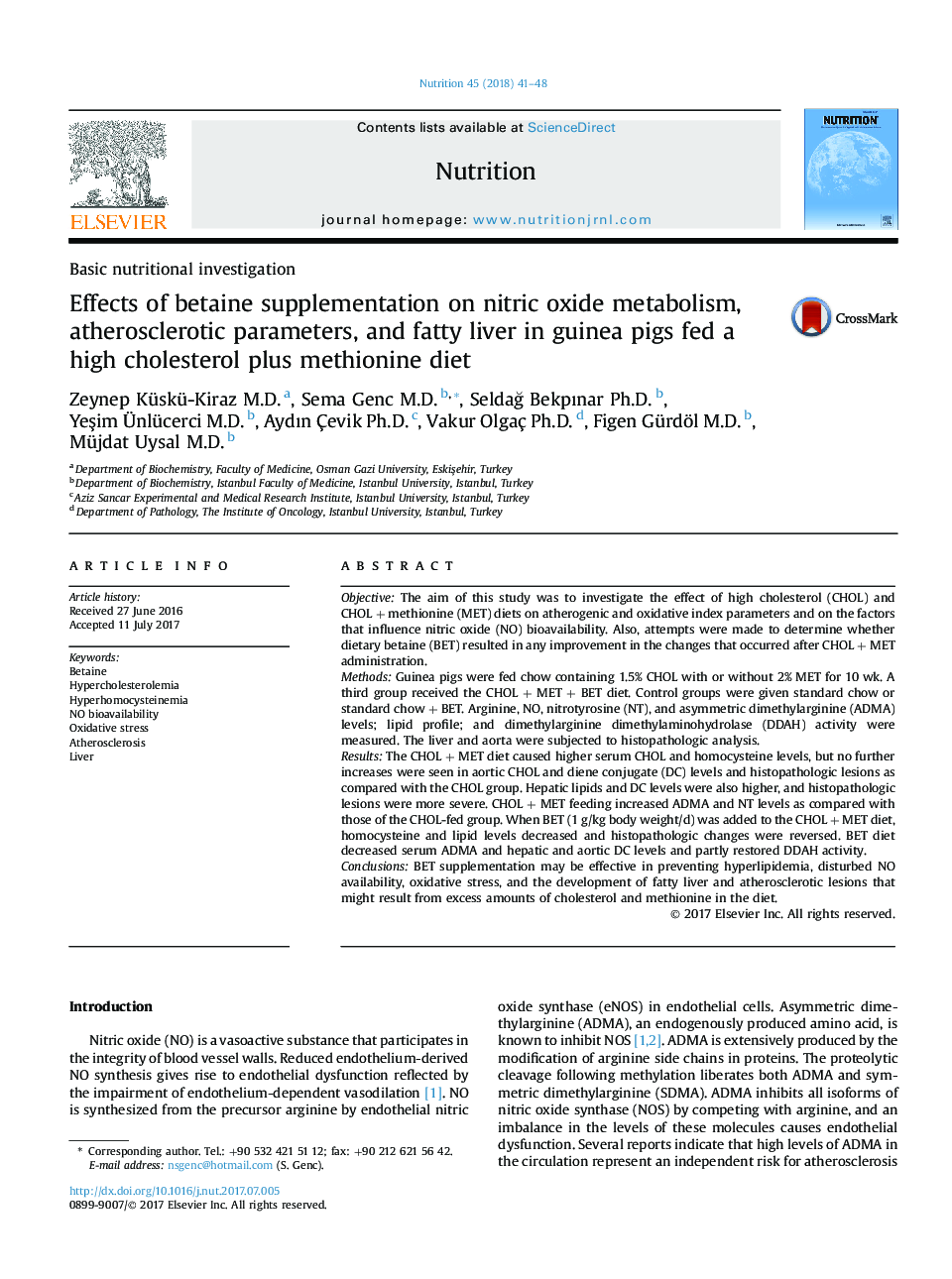| Article ID | Journal | Published Year | Pages | File Type |
|---|---|---|---|---|
| 5656819 | Nutrition | 2018 | 8 Pages |
â¢Cholesterol + methionine diet causes hepatic damage and atherosclerotic lesions.â¢Cholesterol + methionine affects nitric oxide (NO) metabolism and increases oxidative stress.â¢Betaine addition decreases lipid and homocysteine levels and improves NO availability.â¢Betaine reduces liver damage and oxidative stress caused by cholesterol + methionine.
ObjectiveThe aim of this study was to investigate the effect of high cholesterol (CHOL) and CHOL + methionine (MET) diets on atherogenic and oxidative index parameters and on the factors that influence nitric oxide (NO) bioavailability. Also, attempts were made to determine whether dietary betaine (BET) resulted in any improvement in the changes that occurred after CHOL + MET administration.MethodsGuinea pigs were fed chow containing 1.5% CHOL with or without 2% MET for 10 wk. A third group received the CHOL + MET + BET diet. Control groups were given standard chow or standard chow + BET. Arginine, NO, nitrotyrosine (NT), and asymmetric dimethylarginine (ADMA) levels; lipid profile; and dimethylarginine dimethylaminohydrolase (DDAH) activity were measured. The liver and aorta were subjected to histopathologic analysis.ResultsThe CHOL + MET diet caused higher serum CHOL and homocysteine levels, but no further increases were seen in aortic CHOL and diene conjugate (DC) levels and histopathologic lesions as compared with the CHOL group. Hepatic lipids and DC levels were also higher, and histopathologic lesions were more severe. CHOL + MET feeding increased ADMA and NT levels as compared with those of the CHOL-fed group. When BET (1 g/kg body weight/d) was added to the CHOL + MET diet, homocysteine and lipid levels decreased and histopathologic changes were reversed. BET diet decreased serum ADMA and hepatic and aortic DC levels and partly restored DDAH activity.ConclusionsBET supplementation may be effective in preventing hyperlipidemia, disturbed NO availability, oxidative stress, and the development of fatty liver and atherosclerotic lesions that might result from excess amounts of cholesterol and methionine in the diet.
